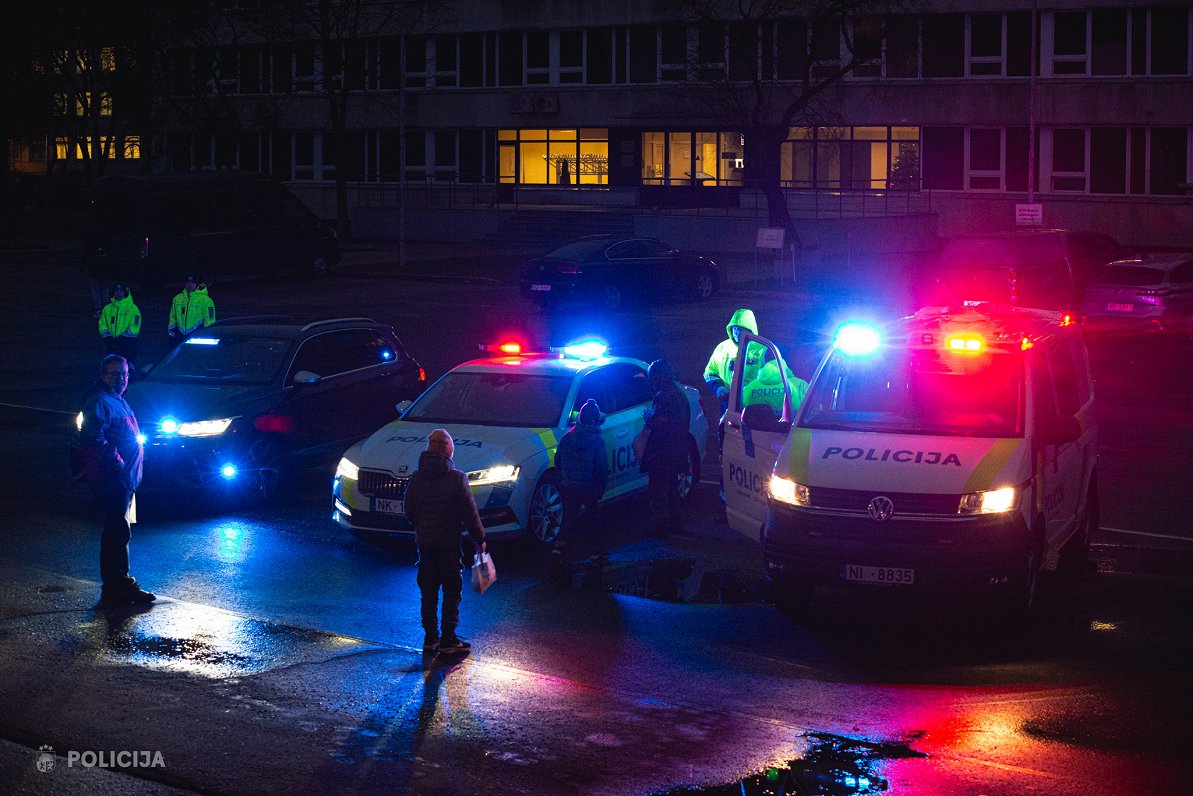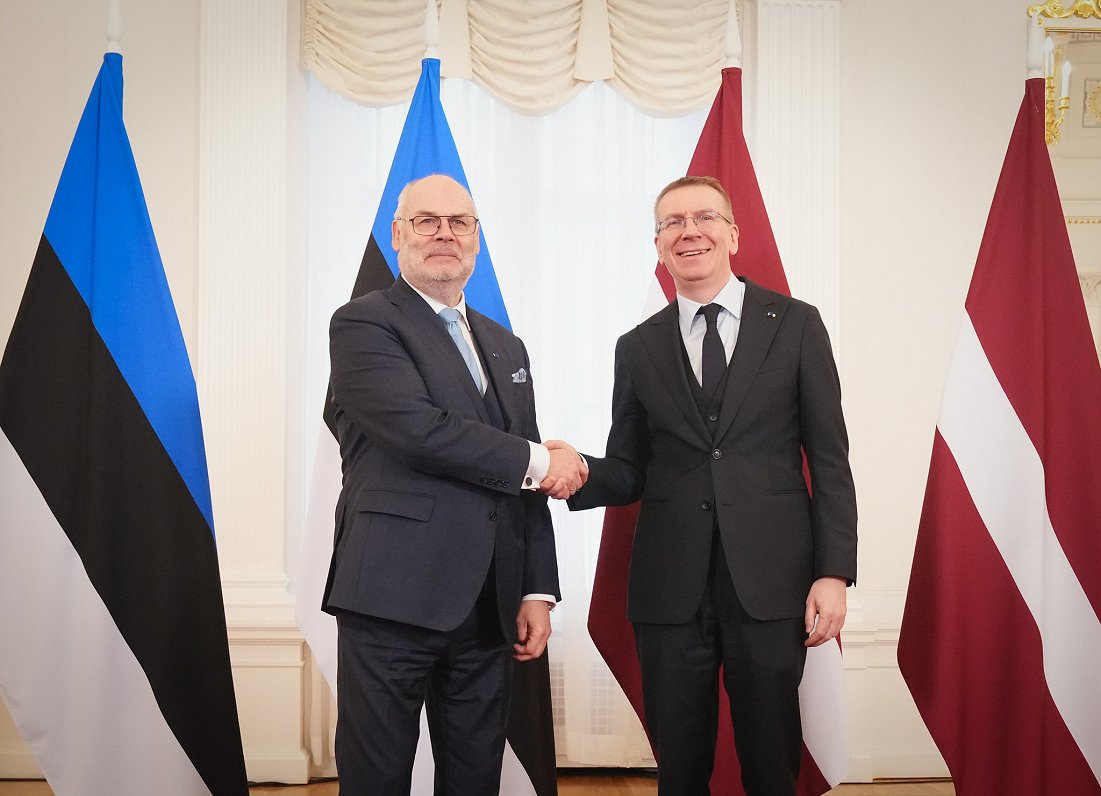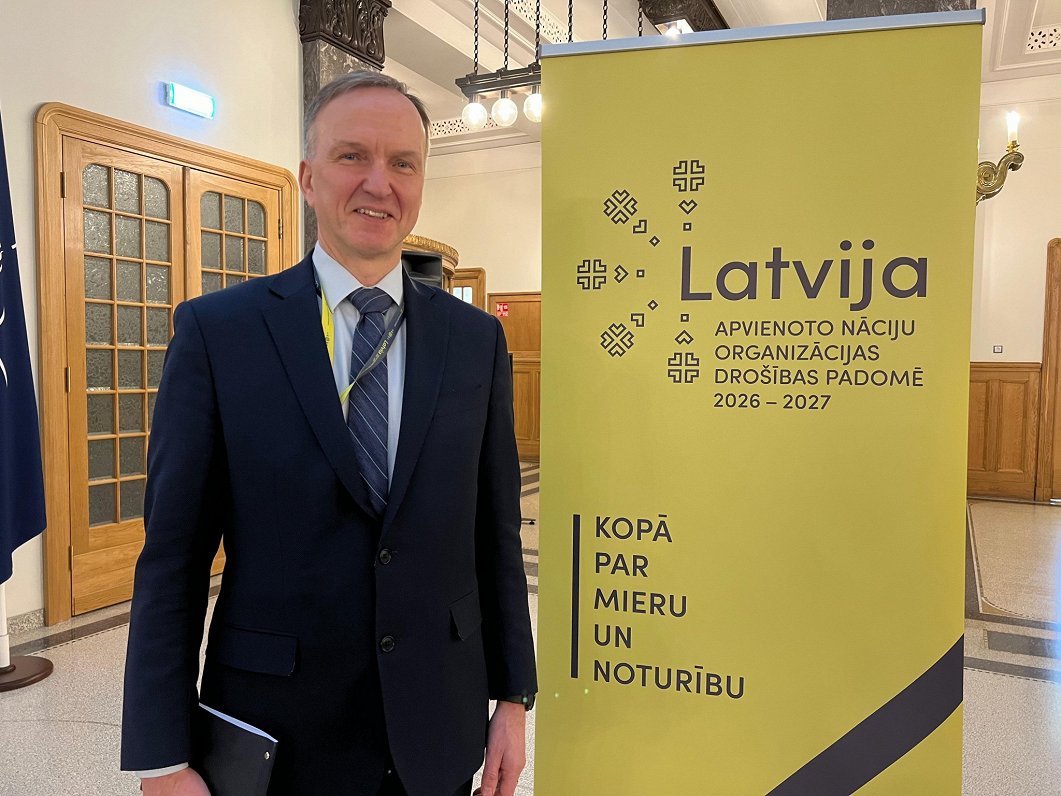Although it is legally questionable, Saeima members continue to participate in committee and subcommittee meetings remotely, reported Latvian Television’s “De facto” program December 22.
Data compiled by the show on meeting attendance in October and November identified those members of the Saeima who most often choose to do their parliamentary work remotely.
During the Covid-19 pademic, the Saeima swiftly and very successfully introduced remote working practises so that parliamentary business would not be too badly affected by restrictions on public gatherings.
But even after the pandemic had subsided, many Saeima members still preferred remote participation. This was also the case at the October 9 meeting of the Legal Affairs Committee, where, due to poor communication quality, deputies decided that in future, bill promoters and proposers from outside the circle of Saeima deputies would be invited to come to the Saeima in person.
However, the deputies are not so demanding towards themselves, retaining the possibility of connecting and voting online. This chance was often used by a member of the Legal Committee, deputy Edgars Putra (United List) who attended remotely at least 10 times in two months. He believes that productivity does not suffer: “Yes, if there are two computers in front of you. Why not? And often there is a logical explanation for this. For example, if I see that the meeting will be short on that particular day, then it is hardly logical to travel three hours from Liepāja to a Saeima committee meeting and another three hours back.”
At the end of November, the Legal Commission considered the issue of a possible criminal offense by a Jelgava judge. A prosecutor also arrived, who had retricted information about the case. Therefore, it was decided to consider it in a closed session. However, two members of the commission – Gundars Daudze (Union of Greens and Farmers) and Edmunds Teirumnieks (National Alliance) – were still able to join the meeting remotely.
The Chairman of the Saeima Legal Committee, Andrejs Judins (New Unity), emphasized to the program that the issue under consideration was not related to national security, therefore, in his opinion, the videoconference mode was justifiable.
From the very beginning, the Saeima Defense, Internal Affairs and Corruption Prevention Committee agreed to work only in person. Its head, Raimonds Bergmanis (United List), recalled the Covid times, when several dozen people used to participate in a committee meeting, which is why the meetings dragged on for hours. In person, work goes more smoothly, Bergmanis concluded.
“De facto” compiled publicly available data on attendance at committee and subcommittee meetings for October and November. Not everywhere in the minutes it is noted whether a member is participating remotely. Those who are online can sometimes be identified if the committee chair names them at the beginning of the meeting. But usually this can only be seen in the meeting itself or sometimes in a video recording.
It was possible to see that, for example, Artūrs Butāns (National Alliance) or Māris Kučinskis (United List) did not appear in person at the Budget and Finance (Tax) Committee meeting, even during the budget review. Only after journalists expressed interest did this committee decide to abandon remote work.
The program’s two-month data compilation revealed that Linda Matisone (United List) from Liepāja connected most often remotely – for at least 21 sessions.
“If the commission head determines that there is an option to participate remotely, I use it because there are other events scheduled that day,” explained Matisone.
In second place is Ilze Indriksone (National Alliance), who participated in at least 13 meetings online in two months. She also justified this choice by being very busy. “In those meetings where there is no important vote, or there were some cases during the meetings of the Education, Science and Culture Commission when I was on other assignments in the regions and therefore used the opportunity to join at least in listening mode to hear the discussions and understand what and how,” said Indriksone.
The data shows that, in terms of committees, MPs particularly often attend meetings remotely of the Public Expenditure and Audit Committee.
At one November meeting, more than half, or seven, of the commission members worked “from home.” Over the course of two months, Jānis Skrastiņš (New Unity) participated in those meetings remotely 8 times. He justified this by saying that it was more convenient: “Well, it’s a quite simple. If the 21st century has already arrived, then I use it that way, too. At the same time, I can listen, follow the meeting, and at the same time, I can also do my other work as a member of parliament. I usually connect in my office and do that,” Skrastiņš told the program.
At one of the meetings of the Sustainable Development Committee in October, five members worked “from home”, at another meeting – as many as six members, exactly the same as in person. But the “record holder” is the European Affairs Committee. As many as 9 out of 14 members joined its November meeting remotely. It should be noted that the members of this committee usually gather on Fridays, which are meant for Saeima members to meet with voters. Whether they really do this is questionable.
In all, 38 MPs connected via video conference at least three times in October and November. Although sometimes they don’t even find time for that. At an October meeting of the Media Policy Subcommittee of the Saeima’s Human Rights and Public Affairs Committee, only three deputies out of 13 attended. This is compared to 26 invited experts, some of whom also arrived in person.
Parliament worked remotely when a state of emergency was declared due to Covid. A special e-parliamentary platform was used for this. However, now there is no legal reason for MPs to not come to work. Virtual voting, which is not provided for in the Saeima Rules of Procedure, is particularly controversial.
The Saeima Legal Office has made its position known to MPs that virtual voting is not possible. One of the biggest problems is that MPs have to vote simultaneously so as not to influence each other’s decisions, which is currently not possible with someone participating remotely. However, many committees continue with the usual practice.
Speaker of the Saeima Daiga Mieriņa (ZZS) admitted in a conversation with “De facto” that remote voting is not allowed at the moment. “We are also talking about the fact that the parliament needs to raise its prestige and pay its members sufficiently high salaries. I think it is only respectful towards those people and towards everyone else that a member is able to come to the session, no matter how much he may not want to,” said Mieriņa.
Remote voting might not meet the description of “the law was passed in due order.” And this could potentially be used by someone who would like to challenge laws that have been passed.
“The Saeima must take into account that if the Saeima does something differently, those who are not satisfied with the Saeima’s decisions can use this… These are simply unnecessary headaches made by the Saeima itself,” said constitutional law expert and sworn attorney Edgars Pastars.
For this reason, members of the Saeima’s State Administration and Local Government Commission participate virtually, but their votes are not counted. “It’s a security issue. We don’t know who is standing next to him [the member of parliament]. God forbid, there will be some serious questions, well, we don’t know who is standing behind him with, say, a gun and calling [for votes],” says Olegs Burovs, head of the Saeima’s State Administration and Local Government Commission (“Honor to Serve Riga”).
The Constitutional and Judicial Policy Subcommittee of the Saeima Legal Committee this week supported amendments to the Rules of Procedure, which, among other things, also provide for the right for committee members to participate remotely. However, this will only be possible in an emergency situation or due to other special circumstances. As the head of the subcommittee, Inese Kalniņa (New Unity), mentioned, a remote place of residence will not be considered a special circumstance.
However, constitutional law expert Pastars believes that the wording should be narrowed. “Special circumstances can also mean that you didn’t want to go. Everyone will start to think like at school – the dog ate my notebook, so, teacher, I don’t have a homework to give. This one is in that direction.”
The monthly salary of a deputy before taxes is 4,220 euros. Next year it will rise by 110 euros. So that deputies from the regions can also work in person, their rent and transportation expenses are paid.





